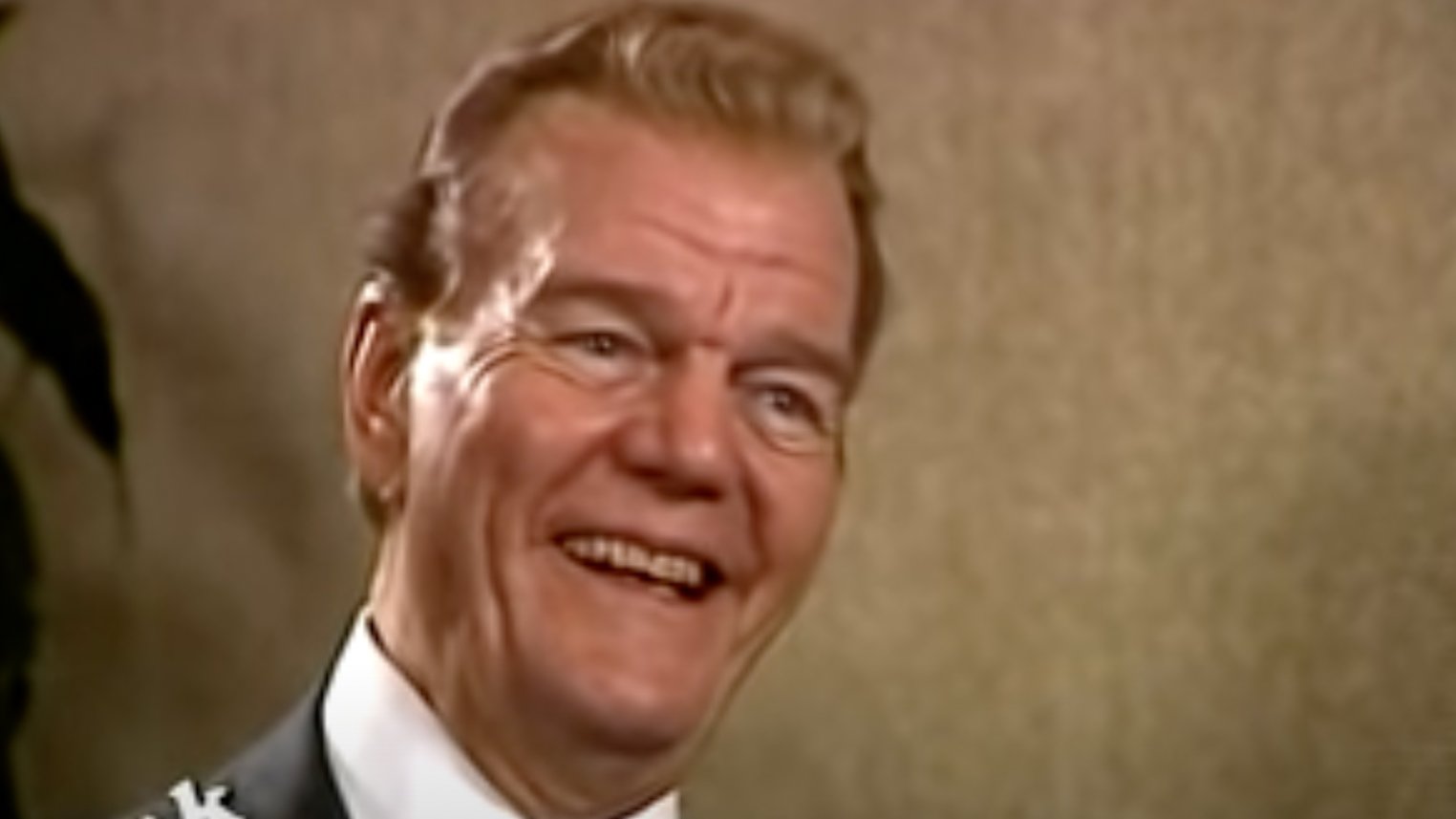
American Broadcast Icon Paul Harvey on Baptism: ‘My Heart Swelled with Joy in My New Surrender’
By Movieguide® Staff
Note: This story is part of our Faith in Hollywood series. For similar stories, click here.
Sporting a decades-long career as a radio personality, Paul Harvey proved himself a masterful storyteller best known for his radio program THE REST OF THE STORY, which took off in the 1970s and ran until his death in 2009.
He tackled many of the important news stories of his day and related them to his audience with verve and human warmth.
However, behind his success on-screen, Harvey revealed that he struggled with total submission to God.
In 1972, Harvey wrote an article reflecting on his struggle to give his entire self to God.
Looking back on a particular moment in his life, Harvey was convinced that all of the steps he had previously taken in life led him here. He didn’t know it at the time, but it was a moment that changed his entire outlook on existence for the better.
Comprised of miscellaneous griefs and losses, Harvey’s life brimmed with sudden changes and disappointments. His father was killed when he was only three. He sought a job earlier in childhood to help support himself, his sister, and their widowed mother.
In 7th grade, Harvey participated in a school presentation over a local Tulsa radio station. From that moment on, his fascination with radio only grew by leaps and bounds. The station he frequently visited in his spare time soon became a place of work.
Harvey found himself being paid for tasks ranging from sweeping the floors to writing commercials. And it was here that he started to get some opportunities at announcing.
The young radioman wished to follow his hopes and dreams, not to consult his fears and shortcomings.
As he wrote in 1972: “I kept remembering what one of my teachers had said, ‘Paul, in this wonderful land of ours, any man willing to stay on his toes can reach for the stars.'”
Through work, he met his future wife. They married, and Paul called her his “Angel in my life ever since.”
In the decades that followed, Harvey met with tremendous success, gaining a news program, TV appearances, and the opportunity to write a regular newspaper column.
“Seemingly, I had achieved everything for which a man could ask,” he said. “Everything, that is, except for a quiet heart.”
Harvey described the feeling as an emptiness or incompleteness in his life, something he couldn’t account for when he had a successful career in broadcast.
While he and his wife (still fondly referred to as “Angel”) were on vacation in the area of Cave Creek, Arizona, Harvey had a life-altering experience.
Spotting a little church in a secluded and picturesque locale, the couple decided to attend a Sunday service.
In his article, he vividly recalls their approach to the church building: “We drove up the mountain road and as we rounded the last turn, the little steeple pierced an azure sky, and white clapboard siding reflected the morning sun. Inside were a dozen or so worshipers on wooden folding chairs, a scene reminiscent of ones I had seen many times as a youth.”
Not overly religious or devotional, Harvey did have a favorite Bible verse that stuck out to him and remained with him for years:
“For God so loved the world, that He gave His only begotten Son, that whosoever believeth in Him should not perish, but have everlasting life.” (John 3:16)
He found himself particularly drawn to the promise of everlasting life. Because it was so appealing, Harvey had many years earlier made a proclamation of faith, though it was rather private and not done inside any church.
That morning, the pastor of the country church chose to speak on baptism.
The subject matter caught Harvey’s attention. The preacher spoke of committing oneself to God. Harvey remembered his words, which would so greatly influence his own faith journey:
“Now I’m going to assume,” continued the minister, “that most of you here this morning have already made this commitment. But the giving of your life to Jesus is just the first step in your life as a Christian.
“There is another step: baptism–the way Jesus experienced it, by immersion in water. This becomes the outward expression of your inward commitment.
“This baptism,” he continued, “through the symbolic burial of your old self and the resurrection of a new one, is your public testimony to your commitment.” He quoted supportive scripture, paused, let it sink in.
“There is no magic in the water,” he added. “One’s immersion is simply an act of obedience, a sign of total submission to God.”
Harvey sat in his folding chair and felt uncomfortable. How could this be directed for anyone more so than himself? What would he do with this newfound invitation to deepen his connection with Christ?
Then the preacher asked if anyone wanted to be baptized. A moment of truth had arrived.
“I found myself on my feet, down the aisle, by his side,” Harvey recalled. “The preacher had said there was nothing magic in the water. Yet as I descended into its depths and rose again, I knew something life-changing had happened. A cleansing inside out. No longer did there seem to be two uncertain contradictory Paul Harveys–just one immensely happy one. I felt a fulfilling surge of the Holy Spirit.”
Questions or comments? Please write to us here.


 - Content:
- Content: 

